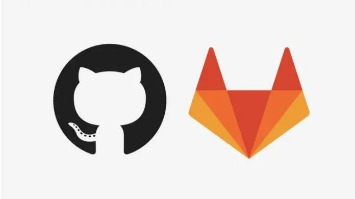
Content
- Team Management Secrets: How To Collaborate In Virtual Teams
- The Power Of Communication In Project Management And Key Reasons To Improve It
- Gitlab Release Cycle
GitLab offers far more detailed documentation on how to import/export data from external vendors while GitHub’s documentation is not as detailed. GitLab is capable of importing projects and issues from more sources than GitHub can. With that being said, GitHub does offer a tool called the GitHub Importer to bring in data. With regard to exporting, GitLab offers a comprehensive solution to export wikis, project repositories, project uploads, webhooks and services, and issues. On the other hand, GitHub is slightly more restrictive in terms of export features.
You’d think that having more features makes Gitlab the default preference for developers. There’s more that comes into consideration when choosing between the two. Here’s a tabular comparison of the features you’ll find in both Gitlab and Github.
In March 2015, GitLab acquired Gitorious, a competing Git hosting service. Gitorious had at the time around 822,000 registered users. Users were encouraged to move to GitLab, and the Gitorious service was discontinued in June 2015.
Team Management Secrets: How To Collaborate In Virtual Teams
Run a security scan to ensure the Docker images for your application do not have any known vulnerabilities in the environment where your code is shipped. GitLab Merge Requests are editable by the author, the project’s owners and users with maintainer access. Deploy Boards offer a consolidated view of the current health and status of each CI/CD environment running on Kubernetes. The status of each pod of your latest deployment is displayed seamlessly within GitLab without the need to access Kubernetes. Easily debug your containers in any of your environments using the built-in GitLab Web Terminal.
With GitHub, branch permissions limit who can push to a specific branch. Repositories can be set to require pull request reviews and status checks, further helping to decrease errors. The major functionality of GitHub is repository branching and forking, pull and merge requests, codebase cloning. The main functionality works quickly – perhaps, the fastest among the three. Developers can quickly upload files to remote repositories and receive immediate notifications from other contributors.
Next, we are going to focus on the differences between the two platforms. Git, with its distributed version control system nature, tracks changes in source code during the SDLC. Created in 2005 by Linus Torvalds and originally designed as a low-level version control system engine, Git is now a full-fledged repository that is mature, open source, and free. Essentially, it is a software management component that handles and tracks changes made to information, software, and programs.
This is a distributed system, unlike other VCS that store the full version history of the code in one place. So, every copy of the code functions as a unique repository that contains the complete history of all changes. As a result, developers can easily monitor BitBucket activity in Jira, measure their productivity, and connect organization boards to collaborative repositories. It’s convenient because project managers can easily keep track of the project’s organizational and tech aspects.
- Create groups within groups to easily manage large numbers of people and projects.
- As you can see, this option allows you to create only public repositories.
- Create a GitLab merge request from within the development panel of a Jira issue.
— $99/user/month, for enterprises that undergo IT transformation and need to improve compliance, operations, and application security. GitHub comes with different pricing plans for individuals and teams. Your choice will depend on the number of collaborators required for your project. There is an option of monthly updates of new features and improvements in GitLab.
The Power Of Communication In Project Management And Key Reasons To Improve It
GitLab CEO Sid Sijbrandij says his company has more advantages now that GitHub is owned by the world’s largest software developer. Both of us are far more familiar with GitHub than Gitlab, and so for our first big project together decided to go with what we know here instead of figuring out something new . We aren’t currently taking advantage of GitHub Actions or very many other built-in features but luckily it integrates very well with the other services we’re using. An important point to consider is that GitHub Enterprise comes in both self-hosted and cloud-hosted variations, so you don’t need to manage your own infrastructure for it unless you would prefer to. If you’re planning on creating OSS repositories under your start-up’s name/brand, people will naturally expect to find the public repositories on GitHub.
This will help teams reduce errors in code and deliver faster results by sticking to you team’s quality standards. On the contrary, it does not come pre-integrated with GitHub; in fact, there are several tools for that. Compared to GitHub, GitLab does not boast a big community yet. Still, it continuously gains popularity exponentially by connecting open-source contributors and hosting community events, which make many large development teams choose GitLab over GitHub. The majority of individual developers who are looking for a private repository find GitHub a bit expensive. Also, there are some security risks when it comes to placing your high-value code in the GitHub repository — it had security breaches before and is targeted continuously. You will need a third-party integration with an external application to deploy apps.
Gitlab Release Cycle
The current technology stack includes Go, Ruby on Rails, and Vue.js. At DeployPlace we use self-hosted GitLab, we have chosen GitLab as most of us are familiar with it. Similar to GitHub, GitLab is a repository manager which lets teams collaborate on code. Written in Ruby and Go, GitLab offers some similar features for issue tracking and project management as GitHub.
In general, all people who use GitLab or GitHub may discover some new features here. GitHub is a fully online platform without any option to run a self-hosted coming under the enterprise tier.
Gitlab Vs Github: Choosing The Best Option For Your Project
We start with the most basic features one can use when they browse repositories. Even though it all can be done from one’s editor, terminal, file manager and so on, sometimes one may want to do it from browser for various reasons. Shanika Wickramasinghe is a software engineer by profession and a graduate in Information Technology. Shanika considers writing the best medium to learn and share her knowledge. She is passionate about everything she does, loves to travel, and enjoys nature whenever she takes a break from her busy work schedule.
In addition, GitLab has its very own continuous integration and continuous delivery already built-in so that users don’t have to install it separately. GitHub, on the other hand, offers third-party integrations for CI/CD work. GitHub has been around for over a decade now and it clearly predates GitLab when it comes to popularity among larger developer teams and organizations. GitLab is a web-based Git repository manager developed by GitLab Inc. for modern software development projects. It’ s a simple yet modern, fully featured Git server used by larger organizations such as Sony, IBM, Alibaba, NASA, O’Reilly Media, SpaceX, CERN, and more.
“GitLab CEO weighing options for going public after employee share sale valued company at $6 billion”. In January 2018, GitLab acquired Gemnasium, a service that provided security scanner with alerts for known security vulnerabilities in open-source libraries of various languages.
GitLab has a comparatively smaller community and a limited set of third-party integration options compared to GitHub, which can be complex for new users. The primary caveat of GitLab is that most advanced features are only available for paid users, and ultimate versions can get quite expensive.
What Are The Most Important Project Managers Skills?
Bitbucket, GitHub, and GitLab, is the support of the open-source repository in the platform. Among all three, GitLab is the only platform that supports an open-source repository. The GitLab platform provides the functionality to the user to see the complete code on their official website. In the GitHub platform, although there is a large category of the free, open-source project, it is not categorized in the open-source repository. In the GitHub platform, there are many free, open-source type projects and helps to connect people who have a similar interest. The Bronze plan (currently $4 per user monthly) is designed for personal projects and small teams.
For example, when an event happens in the Slack integration, update a repo work item. Enables pipelines/workflows to be started based on when any defined event is executed in the code repository. For example, could run a workflow to send a welcome email on adding a new member to a repository or project. Provide read-only access to specific repositories or container images to external infrastructures that need to access your data, for example to deploy applications on Kubernetes. Define your own specific keywords to close one or more issues as soon as a merge request is merged. With GitLab, you can use specific keywords to close one or more issues as soon as a merge request is merged. The Web IDE supports the use of .editorconfig files in projects for standardizing coding style of all users working on the project.




